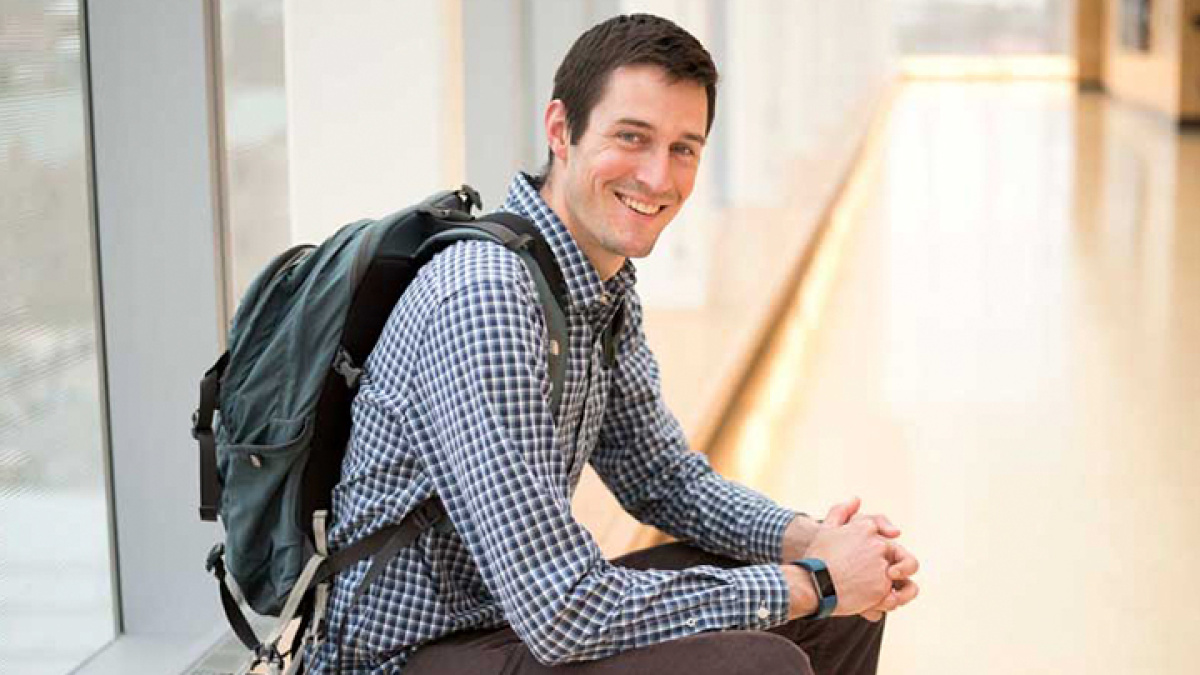
Jordan Rhodes, PhD
I took many things into consideration before choosing Michigan Ross for my PhD program.
Most importantly, as for any PhD student, was the ability to do high-quality research. I was thrilled to discover that not only was I able to dive into research right away, but I also had access to incredible resources and data sets. Plus, the collaborative spirit of U-M has allowed me to work across departments and get a thorough, holistic understanding of my topic.
During my first year at Ross, I wanted to study the effect of hospital closures in Detroit. Between 1960 and 2013, the number of hospitals decreased from 42 to less than ten. A lot of the more recent closures were the result of budget cuts in the late nineties, and I wanted to look at the effect of these closures on health outcomes. For emergency-sensitive conditions such as heart attacks or strokes, proximity to a hospital can really determine the difference between life or death. What happened in Detroit was a telling example of what could happen in other communities.
The faculty at Ross are very supportive, and they really want you to do well.
So there aren’t many data sets that contain the finite geographic characteristics that I was looking for, but one of them is mortality data from the State of Michigan. You have to apply for it because it has sensitive health information, but I was able to get it in my first year here with funding from the graduate school and my department. I applied for a grant and got it almost immediately.
The faculty at Ross are very supportive, and they really want you to do well. They enjoy listening to your ideas and helping you further your research. I had the opportunity to present my work on hospital closures in Detroit to my department during my second year, and I was blown away by the level of feedback and support I received during and after my presentation.
This supportive environment stretches across U-M. I’ve taken a lot of courses at the School of Public Health, and I’ve worked with faculty members there. Their research is especially timely and has analyzed immediate effects of the ACA and its impact on hospitals. So I’ve gotten the best of both worlds: I’ve seen the business side and the economic effects at Ross and I’ve been able to build further off that at the School of Public Health and work on these really timely issues.
One of the other great things about this program is that you get the opportunity to teach. And not as a TA; you’ve got a full course. I had the opportunity to teach 85 students, and I would say it’s an awesome way to enter the teaching world. You get a ton of responsibility, you’re in charge of determining what you’re going to do in class every day, what the midterm is going to look like, how you’re going to prepare these students, and what to teach them that’s relevant.
Teaching can be a lot of pressure, but it’s not like they’re just throwing you into a chaotic environment. Ross’ Faculty in Training program helps you refine your teaching skills and gets you prepared to work in academia. I have not heard of that at other schools. And then you have guidance throughout the semester that you teach. You’re kind of expected to act as a junior faculty member, as if you were hired at another school, but without the rigorous tenure demands.
Faculty talk with you about how you want to teach, have you practice giving lessons, and even give you advice on the small but important stuff, like what fonts to use in presentations. This system prepares you really well for life as a junior faculty member. After this intensive experience of learning how to teach at Ross, and getting guidance throughout the semester I taught, I couldn’t imagine doing this any other way.




